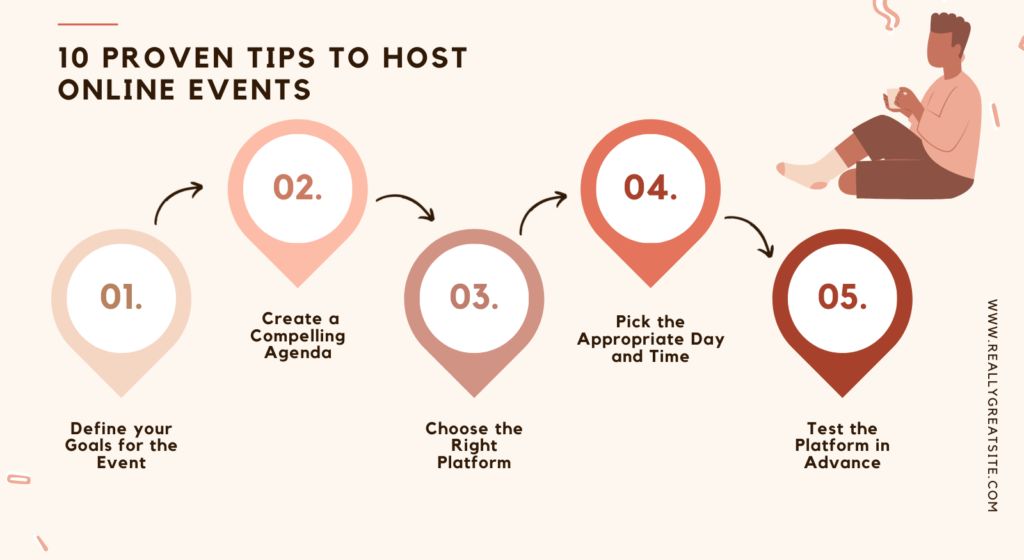Hosting a successful press event can do wonders for a brand’s public image, product launch, or major announcement. When done right, a press event generates media buzz, strengthens relationships with journalists, and creates lasting impressions.
Whether you’re unveiling a new product, announcing a partnership, or sharing important news, meticulous planning and execution are key to making the event memorable and impactful.
1. Define Clear Objectives
Before diving into logistics, be clear about your event’s purpose. Are you trying to announce a new product, boost brand visibility, or address a crisis? Your goals will shape the structure, tone, and content of your press event. Having clear objectives ensures that every element—from the guest list to the press kit—aligns with your intended message.
Ask yourself:
-
What story are we telling?
-
What do we want the media to say afterward?
-
What kind of media coverage are we aiming for?
Once you’ve defined your goals, you can build a strategy that supports them.
2. Choose the Right Venue
The venue sets the tone. It should reflect your brand identity while being practical for media coverage. Consider accessibility, technical requirements, lighting, acoustics, and space for interviews or demonstrations. A tech company might opt for a modern, minimalist space; a fashion brand may prefer a boutique hotel or gallery.
Make sure the venue:
-
Is centrally located or easy to access
-
Has adequate space for equipment and media crews
-
Offers reliable Wi-Fi and power outlets
-
Can accommodate both live and virtual elements, if needed
Don’t forget signage and branding throughout the space to reinforce your message.
3. Invite the Right Media
Craft a targeted guest list. Not all journalists are the right fit for every event. Choose outlets and reporters whose audiences align with your message. A tech product launch should attract tech bloggers and journalists from technology publications, while a celebrity endorsement might need entertainment and lifestyle media.
Send personalized invitations well in advance, and follow up with reminders. Include:
-
A compelling subject line
-
Event details (time, date, location)
-
A teaser about what to expect
-
RSVP instructions
A media contact should be available to handle questions or special requests.

4. Time It Strategically
Timing is everything. Avoid conflicting with major news events, holidays, or industry conferences unless your event is part of one. Consider your target audience’s habits—early mornings may work best for journalists on tight deadlines, while evenings might suit lifestyle reporters.
Also, make sure embargo dates (if any) are clear, and provide ample time for media to prepare coverage. If you’re making a major announcement, consider giving select reporters an exclusive preview to generate buzz.
5. Craft a Compelling Narrative
Your press event should tell a story. Instead of rattling off facts or corporate jargon, focus on why your news matters. How does it impact customers, the industry, or the world? Start with a strong hook, build emotional appeal, and back it up with data or real-life examples.
Speakers should be engaging, well-prepared, and media-trained. Whether it’s a CEO, celebrity ambassador, or product designer, each speaker should contribute something valuable to the story. Keep presentations short, visual, and interactive if possible.
Remember: the press is there to get a story—not a sales pitch.
6. Prepare a Press Kit
A well-organized press kit saves journalists time and increases your chances of getting covered. Whether printed or digital, your press kit should include:
-
A press release summarizing the key news
-
Company background or fact sheet
-
Speaker bios and headshots
-
High-resolution images or product photos
-
Contact information for media inquiries
-
Any relevant data, charts, or infographics
Make your digital assets easy to download, preferably from a cloud folder or dedicated press page.
7. Offer Visual Opportunities
Journalists and bloggers love strong visuals. Plan for photo and video opportunities that support your story. If you’re unveiling a product, choreograph the reveal moment. If you’re announcing a partnership, have key figures pose together or participate in a symbolic gesture.
Set up a branded backdrop for interviews. Provide good lighting and be mindful of sound quality for video crews. If you’re inviting influencers, consider Instagrammable moments that help amplify your message on social media.
8. Engage with Attendees
Make the experience enjoyable and informative for your guests. Greet journalists personally. Offer refreshments, name tags, and a printed schedule. Assign team members to act as media liaisons, guiding journalists, answering questions, and coordinating interviews.
Encourage questions during the Q&A segment, and have spokespeople available for one-on-one chats. Be flexible, respectful, and responsive to the needs of different media formats, from traditional newspapers to TikTok creators.
9. Leverage Social Media
Amplify your event by using social media before, during, and after. Create a branded hashtag and encourage attendees to use it. Share behind-the-scenes content, speaker quotes, and real-time updates on platforms like Twitter, Instagram, LinkedIn, and Facebook.
Consider livestreaming key moments of the event for virtual audiences. Use Instagram Stories or TikTok to create quick, engaging content. Tag media outlets and participants to increase reach and engagement.
10. Follow Up Strategically
After the event, the follow-up is just as crucial as the planning. Send a thank-you email to attendees with:
-
A summary of key takeaways
-
A link to the digital press kit
-
High-resolution images and video highlights
-
Contact info for interviews or follow-up questions
For media who couldn’t attend, offer a recap, a recording, or a chance to speak with a spokesperson. Monitor media coverage, social media mentions, and overall sentiment. Share notable articles on your company’s platforms and keep building relationships with reporters for future coverage.
Hosting a successful press event is part art, part science. It requires creativity, attention to detail, and a deep understanding of how the media operates. When executed effectively, a press event can generate meaningful publicity, position your brand as a thought leader, and lay the groundwork for lasting relationships with the press.
By setting clear goals, curating the experience for journalists, and delivering a strong, newsworthy message, your event won’t just make headlines—it will make an impact.

